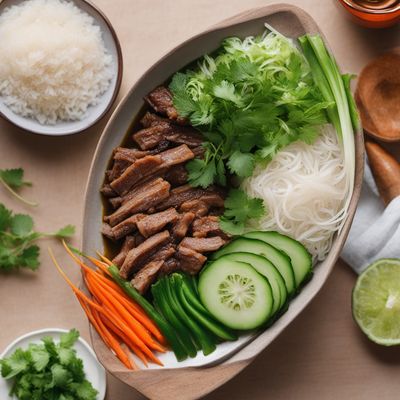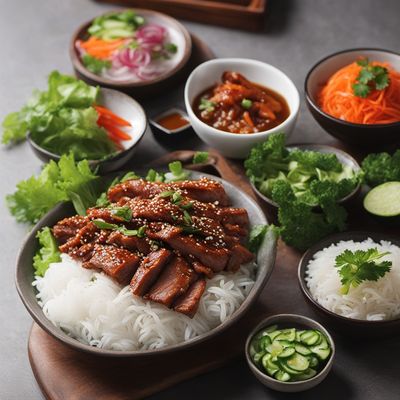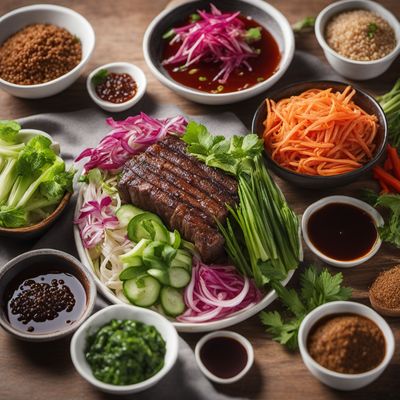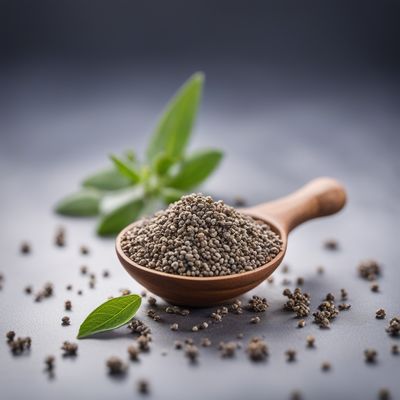
Ingredient
Melinjo seeds
Nutty Indonesian Delicacy
Melinjo seeds are small, oval-shaped seeds that come from the melinjo tree, a plant native to Indonesia. They have a thin, brown outer shell that encases a white, edible kernel. When roasted or fried, the seeds develop a crunchy texture and a distinct nutty flavor. Melinjo seeds are commonly used in Indonesian cuisine as a topping for dishes like gado-gado (Indonesian salad) or as an ingredient in traditional snacks like emping (crackers). They can also be ground into a flour and used in baking or as a thickening agent in soups and sauces.
Origins and history
Melinjo seeds have a long history in Indonesian cuisine and are deeply rooted in the country's culinary traditions. They have been consumed for centuries and are considered a staple ingredient in many Indonesian dishes. Melinjo seeds are primarily cultivated in Indonesia, particularly in the regions of Sumatra and Java. They are highly valued for their unique flavor and texture, which adds a delightful crunch and nuttiness to various dishes.
Nutritional information
Melinjo seeds are a good source of dietary fiber, protein, and essential minerals such as calcium, iron, and magnesium. They are also low in calories and fat. However, it is important to note that melinjo seeds should be consumed in moderation due to their high oxalate content, which may be a concern for individuals with certain health conditions, such as kidney stones.
Allergens
Melinjo seeds may cause allergic reactions in individuals who are sensitive to nuts or seeds. It is advisable to exercise caution and consult with a healthcare professional if you have known allergies or sensitivities.
How to select
When selecting melinjo seeds, look for ones that are fresh and free from any signs of mold or damage. The seeds should have a uniform color and a firm texture. Avoid seeds that appear discolored or have a rancid smell. If purchasing packaged melinjo seeds, check the expiration date to ensure freshness.
Storage recommendations
To store melinjo seeds, keep them in an airtight container in a cool, dry place away from direct sunlight. Proper storage will help maintain their freshness and prevent them from becoming rancid. Stored correctly, melinjo seeds can last for several months.
How to produce
Melinjo trees can be grown from seeds or propagated through cuttings. They require a tropical or subtropical climate to thrive and are best suited for regions with warm temperatures and high humidity. The trees prefer well-draining soil and should be watered regularly. It takes several years for melinjo trees to reach maturity and produce seeds.
Preparation tips
Melinjo seeds can be roasted or fried to enhance their flavor and texture. To roast melinjo seeds, preheat the oven to 350°F (175°C). Spread the seeds in a single layer on a baking sheet and roast for about 10-15 minutes, or until they turn golden brown. To fry melinjo seeds, heat oil in a pan over medium heat. Add the seeds and fry until they become crispy and golden. Use roasted or fried melinjo seeds as a topping for salads, soups, or stir-fries. They can also be ground into a flour and used in baking or as a coating for fried foods.
Culinary uses
Melinjo seeds are commonly used in Indonesian cuisine as a topping for dishes like gado-gado (Indonesian salad) or as an ingredient in traditional snacks like emping (crackers). They add a delightful crunch and nutty flavor to these dishes. Melinjo seeds can also be ground into a flour and used in baking, or added to soups and sauces as a thickening agent. In addition, they can be enjoyed as a standalone snack or used as a garnish for various dishes.
Availability
Melinjo seeds are primarily cultivated in Indonesia, particularly in the regions of Sumatra and Java. They are commonly available in local markets and grocery stores across Indonesia. However, they may be more challenging to find in other parts of the world. Specialty Asian grocery stores or online retailers may carry melinjo seeds or products made from melinjo seeds.
More ingredients from this category
Recipes using Melinjo seeds

Haute Kaiseki: A Fusion of Japanese Elegance and Haute Cuisine Sophistication
Elevated Umami: A Haute Kaiseki Journey through Japanese Culinary Artistry

Angolan-style Bún Đậu Mắm Tôm
Savory Angolan Delight: Bún Đậu Mắm Tôm with a Twist

Korean Chinese-style Bì cuốn
Savory Korean Chinese Rolls

Palembang-style Fried Pizza
Crispy Delight: Palembang's Twist on Fried Pizza

Grilled Bamboo Tube Beef Fusion
Savory Fusion Delight: Grilled Bamboo Tube Beef

